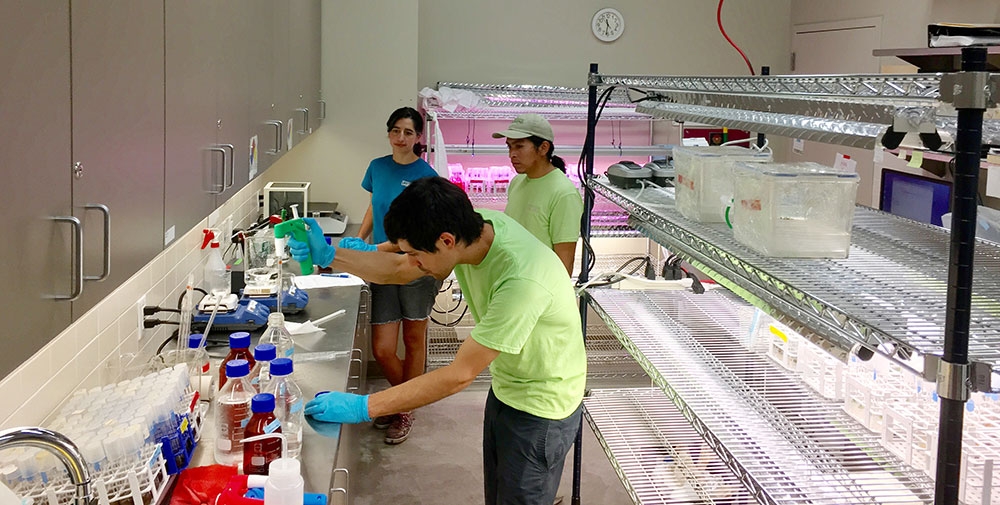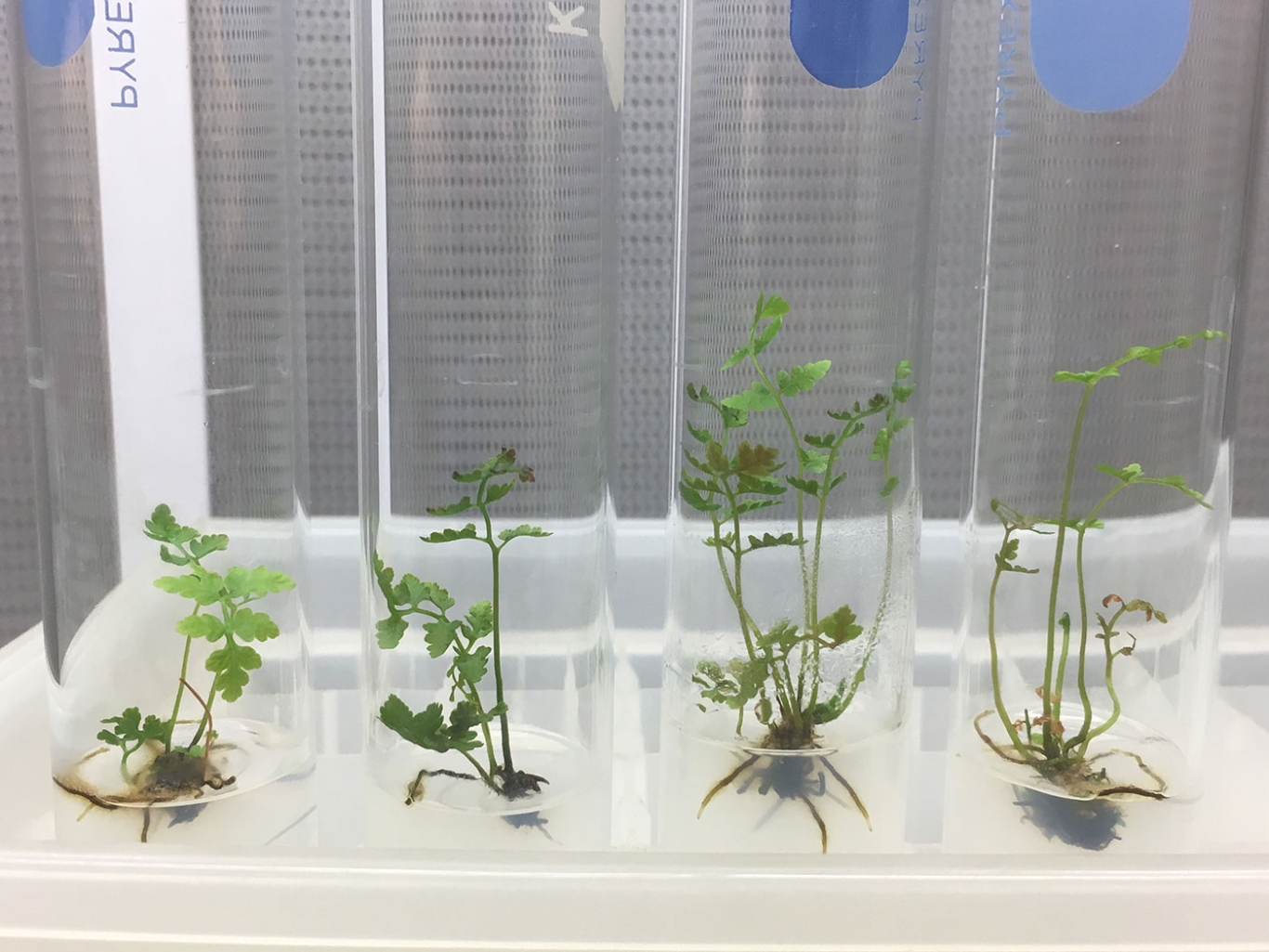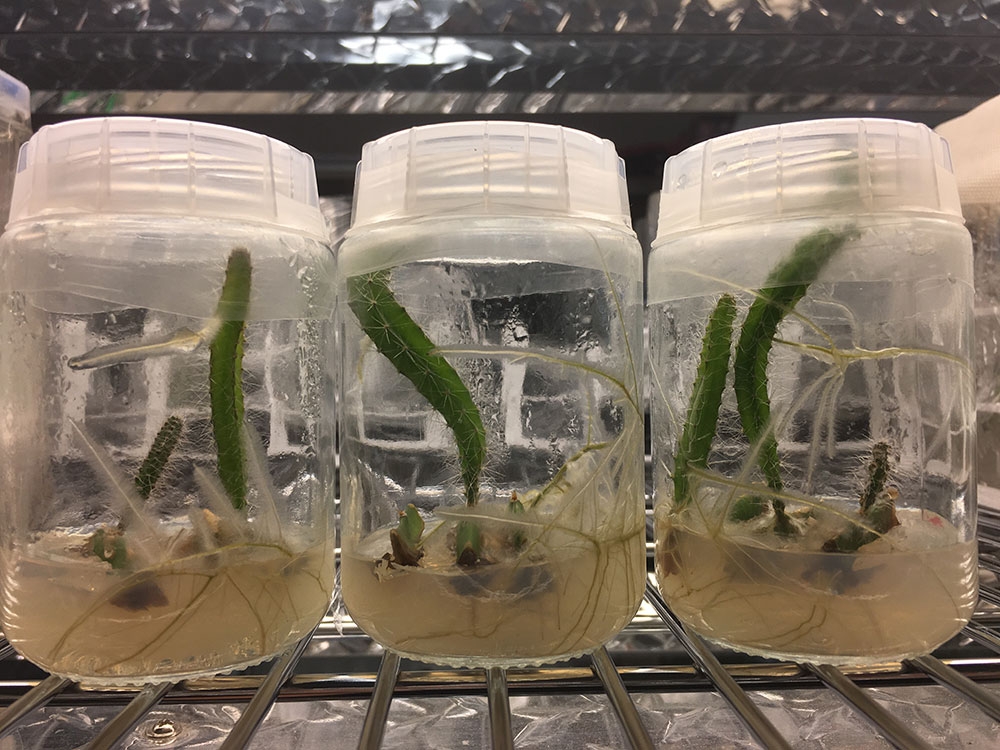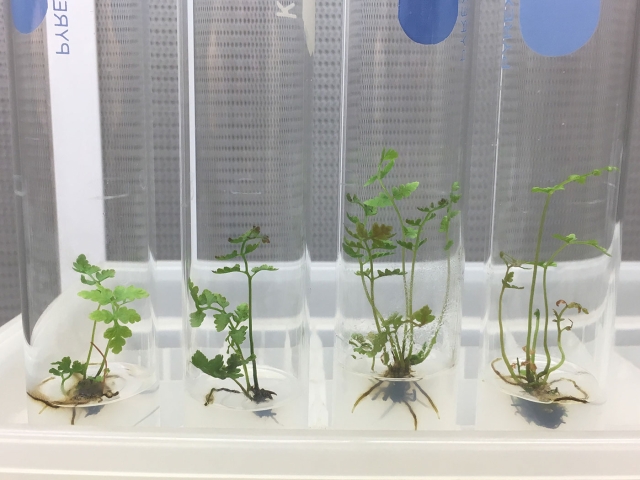Horticultural research seeks to improve the quality, sustainability and aesthetics of designed landscapes. The core of the research includes identifying and promoting sustainable horticultural practices such as integrated pest management and use of plants with pest and disease resistance, use of drought tolerant plants for reduced water use, use of climate-adapted plants, using plants attractive to native wildlife, plants for green roofs, etc.
Plant Evaluation and Trial Gardens
Trialing plants to determine their suitability to a climate or specific characteristics such as yield, fruit size, flower color, etc. has been practiced for more than 11,000 years. At Denver Botanic Gardens, we look for new plants to enhance our living collections, either through plant collecting expeditions, purchase from commercial sources or exchange with other botanic gardens. To achieve this, we engage in wild plant collecting expeditions. Plants with exceptional value have been introduced for public utilization through Plant Select®, our plant introduction program in collaboration with Colorado State University and the Green Industry of Colorado, or through the ‘Grown at the Gardens’ division of our plant sale.
With the introduction of plants from foreign lands comes the responsibility of rigorously testing the plants for invasive potential and water consumption characteristics. With this need in mind, a one-acre horticultural research garden at our Chatfield Farms location was installed in 2007. Introduction of a wide variety of plants suited to our region will transform our regional landscapes and make gardening habits more sustainable.
Propagation Research
Propagation research is necessary for horticultural as well as conservation purposes. At Denver Botanic Gardens, we acquire plants in our collections that are not often available in horticultural trade, through plant exploration or exchange with other gardens. Propagation methods are generally not known, so we research how to propagate and maintain them.
SEED PROPAGATION
Seed propagation research includes:
- Developing germination protocols for wild collected seeds that are not available in the horticulture trade.
- Developing germination protocols for conservation purposes.
MICROPROPAGATION
Micropropagation (also known as plant tissue culture) is a method of growing entire plants from small pieces of plant tissue that are genetically identical to the donor plant. This technology can be used to propagate plants in addition to aid the conservation of rare and endangered plants. We are currently working on four hard-to-propagate plants by propagating cuttings:
- Heuchera sanguinea ‘Snow Angel’
- Osteospermum spp. (three cultivars)
- Erodium absinthoides
- Geranium magniflorum ‘La Veta Lace’
Gallery



